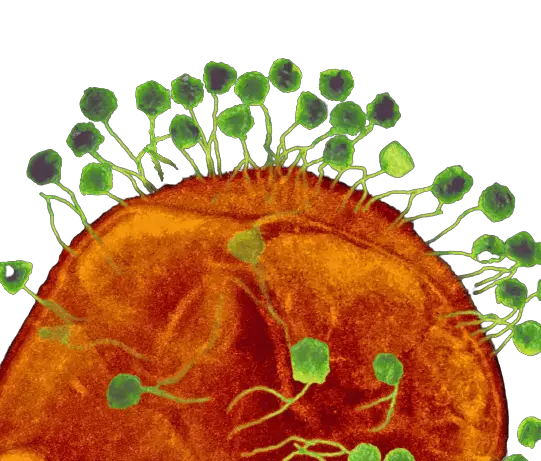In the world of booming antimicrobial resistance, scientists worldwide struggle to find a proper method of treating superbugs. Recently, the savior has been recognized globally, and interest has been reinstated to build on the foundation of what is already known. A virus that is the most abundant entity on this planet has turned into an alternative to antibiotics. These viruses have so far saved patients who were in intensive care units where no antibiotic was able to cure them. Despite the trials on ways of commercializing them just like regular antibiotics, phages still suffer from many problems, provided that they are live particles. One of the significant problems is maintaining phage preparation stability during delivery. Primarily, the stability will be influenced by the matrix/media used to suspend phages.
Researchers from North Carolina State University (NCSU) have developed a soft material capable of preserving bacteriophages for therapy. Alongside his colleague Christopher Gorman in the Department of Chemistry, and students Ryan Smith and Juliana O’Brien, Stefano Menegatti, a University Faculty Scholar and an associate professor of chemical and biomolecular engineering, have developed new dendrimers — highly structured macromolecules — that act as glue around nanoparticle templates. These templates include bacteriophages, viruses that can infect and attack harmful bacteria in the body. While they can serve as an alternative to traditional antibiotics, formulating and stabilizing them as a medicine can be challenging. To remain safe and effective, therapeutic bacteriophages need protection from environmental changes.

The team discovered that dendrimers, when combined with short chains of amino acids, or peptides, can envelop nanoparticles and maintain their stability in various conditions. The coatings serve to maintain the water content inside a virus while simultaneously acting as a proton sponge, effectively shielding the virus from salt or pH changes. This soft yet impermeable barrier creates and maintains a favourable environment for the virus, ensuring its stability and effectiveness.They have coined the term “DendriPeps” for these dendrimers. When nanoparticles are suspended in water, these soluble DendriPeps ensure they remain within a closed, stable system.
Once DendriPeps have coated nanoparticles, localized shear triggers their release and initiates therapeutic activity. Soft materials can be engineered to respond both physically and chemically to stimuli such as temperature, pressure, and moisture. Shear, in particular, is an ideal stimulus for drug delivery applications due to its widespread occurrence throughout the body. For instance, eyelids cause shear during blinking, waste generates shear on the gut wall during digestion, and shear is produced when rubbing something onto the skin. This capability enables DendriPeps to effectively treat local infections.
When a cluster of DendriPep-coated nanoparticles undergoes shear, it degranulates, releasing the individual particles. These particles can subsequently release a therapeutic payload or, similar to bacteriophages, infect and eliminate harmful bacteria. When therapeutic action is not required, shear is removed, allowing the particles to be recoated with DendriPeps and reclustered, thereby halting the release of the payload.
This formulation presents a means of safeguarding bacteriophages, providing an avenue for substituting antibiotics in critical applications necessitating personalized and targeted treatment. The extensive utilization of antibiotics has fostered the emergence of superbugs — bacteria resistant to conventional antibiotic doses. Additionally, the research team is actively working on the development of further DendriPep-based nanomedicines to facilitate the delivery of novel drugs such as viral vectors in gene therapy.
Thanks for visiting The Phage. if you have liked it and you don’t want to miss out, feel free to subscribe to our newsletter by clicking here
Dendrimers are synthetic polymers with a structure of repeatedly branching chains, typically forming spherical macromolecules.





Wonderful invention. let phages to be the constant drug delivery agents
Indeed its a wonderful one